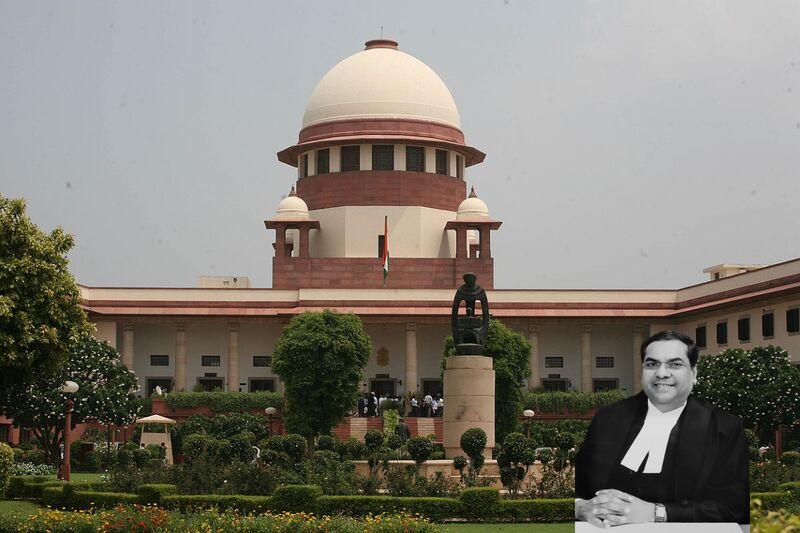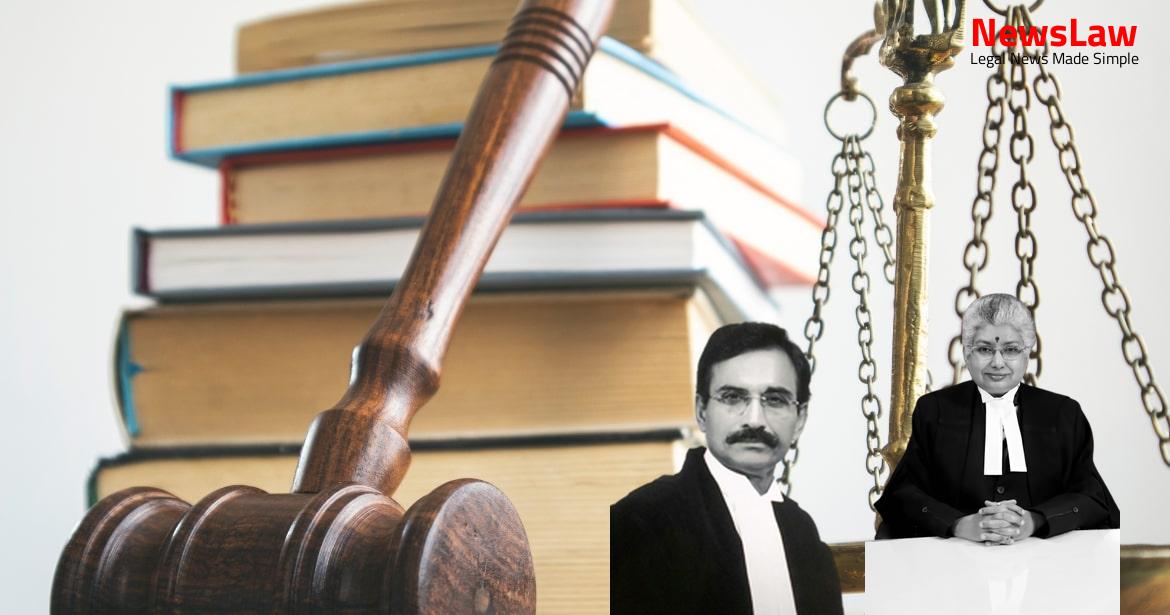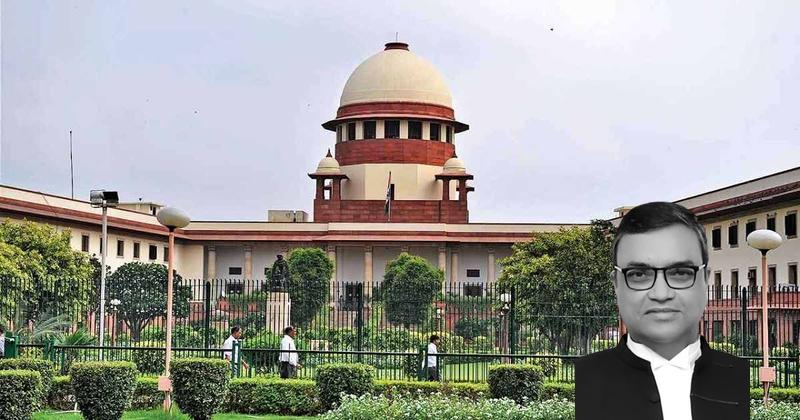SOCIEDADE DE FOMENTO Industrial Private Limited, Margao, Goa/the Respondent herein filed Writ Petition (C) No 5152/2021 praying 2 for an appropriate writ directing the first Appellant to proceed with the second round of auction as per Sub-Rules (10) to (12) of Rule 9 of the Mineral (Auction) Rules, 2015, as amended by Mineral (Auction) Amendment Rules, 2017 and for a further direction restraining the Appellants herein from taking any action to defeat the rights of the Respondent in the subject tender process. The Respondent, hence, filed L.P.A No 165/2022 and by the Impugned Judgment, the L.P.A was allowed. The Impugned Judgment, among other reasons, held that the Appellants are bound by the statutory obligation under the second proviso to Sub-Rule (12) of Rule 9 of M(A) Rules and the bid of the Respondent is considered further.
The NIT dated 25.10.2019 specifically invited the expression of interest through the digital platform on the MSTC website and submission of a physical copy of the uploaded bid documents at the office of the second Appellant.
The TEC in the meeting of the even date recommended annulment of the auction initiated through auction notice dated 25.10.2019. It 5 was noted by the TEC in the meeting held on 11.06.2020, that in response to the NIT dated 28.01.2020, only one expression of interest was received, i.e., from the Respondent herein and further resolved as follows: – “At the outset, the members of the Tender Evaluation Committee were welcomed and briefed about the agenda for the meeting. The Appellants, by letter dated 27.12.2021, advised MSTC to upload the decision of the State Government to annul the auction initiated through tender dated 25.10.2019 and 28.01.2020. The Appellants in terms of Rule 9, Sub-Rule (12) have two options: Firstly, to annul the whole process initiated through NIT dated 25.10.2019, i.e., to conduct a fresh auction with de novo terms and conditions. The Appellants, hence, issued the NIT dated 28.01.2020 by following 7 Rule 9, Sub-Rule (11), Clause (b); therefore, the Appellants have rightly reissued the NIT with the same terms and conditions as covered by the NIT dated 25.10.2019.
The Appellants instead of proceeding further on the lone bid of the Respondent, decided to notify a fresh auction after annulling the tender process initiated through NIT dated 25.10.2019, because there was only a single bid of the Respondent. The Appellants further canvassed that they must have the freedom of contract and even the acceptance of the technically qualified highest bid is looked through the prism of public 9 interest, and the comparison with the procedure adopted in other states is no reason or a guide to consider the price bid of the Respondent.
(ii) That, Sub-Rules (10), (11), and (12) of Rule 9 of the M(A) Rules, 2015, as introduced by the Rules, 2017, specifically address situations where there are “technically qualified bidders less than three.”
Also Read: https://newslaw.in/?p=680
In such cases, the highest initial price offers of the technically qualified bidders are taken as the reserve price for the second attempt of the auction. Further, a fresh NIT was issued for the Lodhapat Bauxite Block, supporting the Petitioner’s argument that the NIT dated 28.01.2020 for both blocks were indeed annulled. (II).Whether the State can be allowed to go for the fresh tender even though the State Government has resorted to the process in terms of provision as contained under Rule 9(11)(b) of the Rules by resorting to the second attempt of auction process?.” 1 The summary of findings recorded by the Division Bench is stated thus: – (i) That, the Appellants made their decision based on a note found in a file dated 27.12.2001, which indicated that there were less than two or three bidders.
(iii) That, the Single Judge dismissed the Writ Petition, stating that allowing a single bidder in the auction process would go against public policy.
What would be against public policy is if the TEC is required to take action under the statutory provisions and fails to do so. In this case, the TEC’s decision should not be considered contrary to public policy, because it was made in accordance with the statutory provisions. To reiterate, it is pointed out that the Impugned Judgment records that the recommendation of the TEC should have been examined and the tender process taken forward for price evaluation, since the decision of the TEC is in accord with the extant Rules. The first proviso of Sub- Rule (12) of Rule 9 prescribes that the highest initial price and offer of a technically qualified bidder, if any, in the first annulled attempt shall be the reserved price in the first round of the second attempt. According to him, the Appellants have, pursuant to the decision dated 15 17.12.2019 of the TEC, decided to annul the NIT dated 25.10.2019 and proceed with the second attempt of the auction.
Natural resources, including mines, minerals, etc., are considered national wealth for the common good and benefit of society through a systematic, scientific and legal exploitation of the natural resources. The tender document lays down the mode and manner of communication of expression of interest/bid both online and filing of physical copy of the document submitted online. (2) The tender document issued by the State Government shall contain, (a) geological report pursuant to the Minerals (Evidence of Mineral Contents) Rules, 2015 specifying particulars and estimated quantities of all minerals discovered in the area; and 18 (b) revenue survey details of the area identified and demarcated using total station and differential global positioning system divided into forest land, land owned by the State Government, and land not owned by the State Government.
(5) In the first round of auction, the bidders shall submit,- (a) a technical bid comprising amongst others, documentary evidence to confirm eligibility as per the provisions of the Act and the rules made thereunder to participate in the auction, bid security and such other documents and payments as may be specified in the tender document; and (b) an initial price offer which shall be a percentage of value of mineral dispatched. Provided that if the number of technically qualified bidders is between three and five, then all the technically qualified bidders shall be considered as qualified bidders: Provided further that in the event of identical initial price offers being submitted by two or more technically qualified bidders, all such technically qualified bidders shall be assigned the same rank for the purposes of determination of qualified bidders and in such case, the aforementioned fifty percent shall stand enhanced to the extent of tie occurring within the first fifty percent. (10) Where the total number of technically qualified bidders is less than three, then no technically qualified bidder shall be considered to be qualified bidder and the first attempt of auction shall be annulled. Provided that the highest initial price offer of the technically qualified bidders if any in the first annulled attempt shall be the reserve price in the first round of the second attempt. 2 Sub-Rule (6) stipulates the criteria for declaring the bidders as technically qualified bidders for the second round of auction. 7 Sub-Rule (9) from a plain reading elevates the consideration of process to the second round of auction, subject to minimum number of three qualified tenders being shortlisted. (i) either to annul the first round of auction and proceed with de novo auction, with changed or modified conditions; (ii) to conduct the second attempt of auction without making changes in terms and conditions, of the first attempt of auction.
On the contrary, Sub-Rule (10) is attracted, (a) when the 24 technically qualified bidders are less than three; (b) none of the technically qualified bidders shall be considered; (c) the first attempt of auction shall be annulled. After adverting to the scheme of Rule 9, we would juxtapose each one of the milestones admitted to appreciate whether the claim of the Respondent for taking up its technical bid into the second round in the second attempt is legal and valid. Therefore, the TEC, in the meeting dated 17.12.2019, recorded that no technical bid was received till the due date/time and recommended the annulment of the first attempt of the auction process. In other words, there could be less than three bidders, but it does not include a case where there is none, as in the present case, otherwise the Appellants are confronted by a very peculiar situation viz., no responsive bid in the first attempt and in the second attempt one bid/response is available and without a floor rate or reserved price or auction the rights in mineral extraction to third parties.
Even assuming that the contention of the respondent that the authorities had decided to pursue the second attempt at auction, it is evident from the record that the Appellants faced challenges in objectively proceeding with the tender evaluation, particularly when they received only one response to the second auction attempt through the NIT dated 28.01.2020.
But the error we notice from the impugned judgement is that the recommendations dated 11.06.2020 are understood as obligating the Appellants to process the price bid of the Respondent as per proviso to Sub-Rule (10) of Rule 9 of the M(A) Rules. This Court allowed the Appeal and set aside the High Court’s judgement wherein the agreement between the Department and Appellant (Jagdish Mandal) was quashed. If the decision relating to award of contract is bona fide and is in public interest, courts will not, in exercise of power of judicial review, interfere even if a procedural aberration or error in assessment or prejudice to a tenderer, is made out.
Such interferences, either interim or final, may hold up public works for years, or delay relief and succour to thousands and millions and may increase the project cost manifold. Let us also examine the argument of the Respondent viz., the Appellants are obliged to operate the second proviso of Sub-Rule (12) of Rule 9 and process the price bid of the Respondent from the following circumstances:- Michigan Rubber (India) Ltd.
Sub-Rule (12) of Rule 9, firstly provides for the course of actions the State Government must follow in the event of a decision to conduct the second attempt of auction viz. Being so, it can be held that the Appellants in the terms of the second proviso of Sub-Rule (12) of Rule 9 32 consider proceeding to the second round of the second attempt even if the number of technically qualified bidders is less than three.
In the case on hand, the first attempt initiated through the NIT dated 25.10.2019, in our appreciation and application of Rule 9, cannot be considered as a first attempt, which is not annulled for want of technically qualified bidders, but annulment was for want of bidders’ responses. Once the NIT dated 27.10.2019 is held as a non-responsive tender, then the Sub-Rule (12) of Rule 9 of the M(A) Rules is not attracted, and the Appellants are not compelled to evaluate the sole price bid of the Respondent in terms thereof. Civil Appeal is allowed.
Case Title: THE STATE OF JHARKHAND Vs. SOCIEDADE DE FOMENTO INDUSTRIAL PVT. LTD.
Case Number: C.A. No.-007495-007495 / 2023



